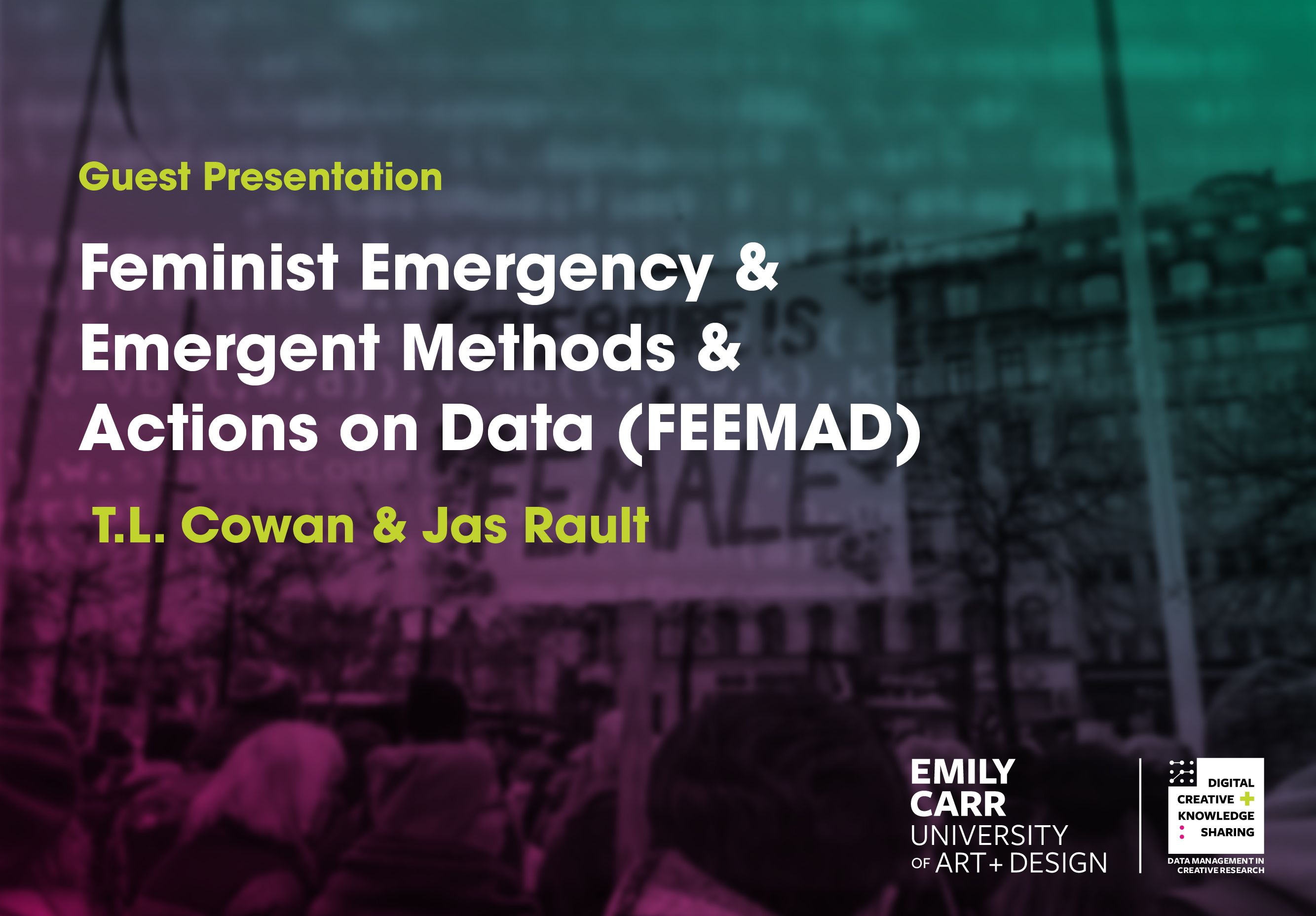T.L. Cowan & Jas Rault, Feminist Emergency & Emergent Methods & Actions on Data (FEEMAD)

T.L. Cowan and Jas Rault will discuss feminist, anti-oppression and relationship-based ways of working in the context of contemporary data politics.
When
Add to Calendar: iCal
Location
Online Attendance
Passcode: 739212
Contact
Lois Klassen, Conference Coordinator | lklassen@ecuad.caOpen to Public?
Yes
and presentation will include a discussion of the (of which Cowan and Raul are 2 co-authors) and their forthcoming book , in which they offer trans-feminist and queer genealogies and speculative futures for contemporary digital research methods and ethics.
From the Feminist Data Manifest-NO:
- We refuse any code of phony “ethics” and false proclamations of transparency that are wielded as cover, as tools of power, as forms for escape that let the people who create systems off the hook from accountability or responsibility. We commit to a feminist data ethics that explicitly seeks equity and demands justice by helping us understand and shift how power works.
- We refuse work about minoritized people. We commit to mobilizing data so that we are working with and for minoritized people in ways that are consensual, reciprocal, and that understand data as always co-constituted.
- We refuse a data regime of ultimatums, coercive permissions, pervasive cookie collecting, and blocked access. Not everyone can safely refuse or opt out without consequence or further harm. We commit to “no” being a real option in all online interactions with data-driven products and platforms and to enacting a new type of data regime that knits the “no” into its fabric.
From Heavy Processing,
“We have come to think of heavy processing as a desiring, pleasurable and hard-working set of attachments and sensibilities to relationship-based, complex knowledge formation–a kind of socio-political-aesthetic-epistemological heavy petting + heavy lifting, if you will–and reflecting on the ways that this method is in/formed by a long history of trans-feminist and queer (TFQ) practices and information technologies. … We hope to point to what TFQ heavy processing can bring to the ongoing futures of digital research practice: not only an orientation to the ethics and good-practices of process-heavy methods, but also to the pleasure, sociality, and trust in never-ending relationship-building that is not ashamed or afraid to be both feminized, queered and sexualised.”